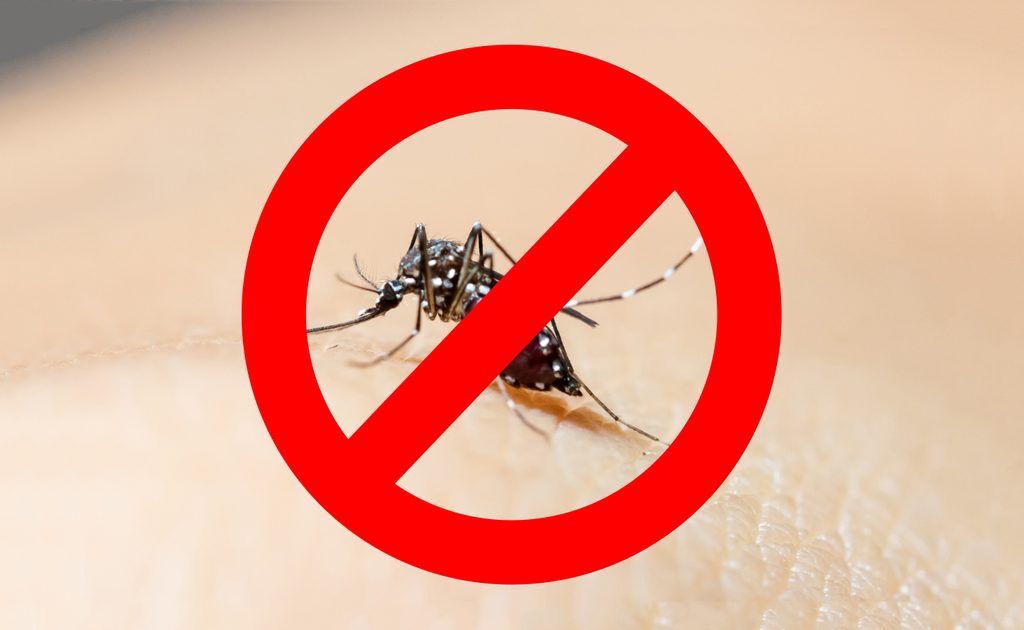What the World Would Look Like Without Mosquitoes
Updated: May 17, 2022

Can you imagine a world without mosquitoes—and mosquito bites? You're not alone.
They’ve been called the deadliest creatures on Earth (aside from humans, that is). And while it’s hard to imagine that your average mosquito—just a few centimeters long and weighing a couple of milligrams— could inflict major carnage, the biting, blood-sucking females of some 100-plus species are vectors for any number of potentially fatal diseases. Mosquitoes carrying malaria kill 435,000 people around the world every year according to the U.S. Centers for Disease Control and Prevention (CDC) and more carry these other potentially deadly diseases.
So, what would happen if we managed to eradicate every one of these insects from the planet? There’s good news and bad news.
It’s a slippery slope
Stanford bioethicist Henry Greely calls for caution—and a lot of it—when it comes to plotting the extinction of any living thing. “I would want there to be some consideration and reflection, and a social consensus, before we take that step,” he told Smithsonian Magazine. His concern? If we say yes to eradicating mosquitoes, then why not rats? Or birds? Or bats? Or any other animal someone decides is problematic at any given time?
Bird and bat species could suffer
Speaking of bats and birds: These are animals that rely heavily on mosquitoes, feasting on them to make up a sometimes considerable portion of their diet. A little brown bat, for example, can eat up to 1,000 mosquitoes in just one hour. And in the Arctic tundra, reports Smithsonian, spring hatchings of billions of mosquitoes “are a significant food resource for birds.” Bruce Harrison, an entomologist at the North Carolina Department of Environment and Natural Resources in Winston-Salem, told Nature “that the number of migratory birds that nest in the tundra could drop by more than 50 percent without mosquitoes to eat.”
So long, little fish?
It’s not just warm-blooded animals that would be at risk if we wiped out mosquitoes. Plenty of fish and other insects feed on them and their larvae. As entomologist Grayson Brown told Gizmodo, “Mosquito larvae are very important in aquatic ecology…and the loss of that food source would cause their numbers to decline as well.” Furthermore, he says that the ecological damage that would be necessary to wipe mosquitoes out, i.e., “draining swamps/wetlands, applying pesticides over wide areas…would make eradication not worth it unless there was a very serious public health emergency.”
Pollination problems
Did you know that some mosquitoes actually perform pollination services, just like bees and butterflies do? By flitting from flower to flower—including orchids in some northern regions, according to the U.S. Forest Service—they carry pollen from one to the other on their feet. Wiping mosquitoes out, writes Nature, might “leave a predator without prey, or a plant without a pollinator.”
Changing migration patterns
“Mosquitoes consume up to 300 milliliters of blood a day from each animal in a caribou herd, which are thought to select paths facing into the wind to escape the swarm,” says Nature. “A small change in path can have major consequences in an Arctic valley through which thousands of caribou migrate, trampling the ground, eating lichens, transporting nutrients, feeding wolves, and generally altering the ecology.”
Unleashing the power of CRISPR
One less apocalyptic way scientists are seeking to solve the mosquito problem is by genetically altering them with a relatively new and optimistic technology called CRISPR, rather than eradicating them altogether. But critics maintain that this presents its own ethical dilemma.”We can remake the biosphere to be what we want, from woolly mammoths to nonbiting mosquitoes,” Greely told Smithsonian. “How should we feel about that? Do we want to live in nature, or in Disneyland?” Also of concern to some: What if terrorists got their hands on mutated bugs and used them to engineer epidemics?
More humans…
With so many people succumbing to mosquito-borne diseases every year, one unquestionable result of eradicating all these flying agents of potential death would be that more people would live longer. “Countries freed of their high malaria burden, for example in sub-Saharan Africa, might recover the 1.3 percent of growth in gross domestic product that the World Health Organization [WHO] estimates they are cost by the disease each year, potentially accelerating their development,” reports Nature.
…Less suffering
There’d be fewer people suffering and surviving the ill effects of malaria, Zika, and the like, as well. As WHO malaria scientist Jefferey Hii told Nature, this means “less burden on the health system and hospitals, redirection of public-health expenditure for vector-borne diseases control to other priority health issues, less absenteeism from schools,” as well as just plain less misery overall.
Other species would fill the gap
Finally, many scientists have speculated that, since no mosquitoes are actually keystone species on which whole ecosystems depend, other insects would step in to fill the void their absence would create. “[I]n many cases, scientists acknowledge that the ecological scar left by a missing mosquito would heal quickly as the niche was filled by other organisms,” postulates Nature. “Life would continue as before — or even better.” While scientists continue the debate, to cut down your exposure in the meantime, try landscaping with some of these mosquito-repelling plants.
